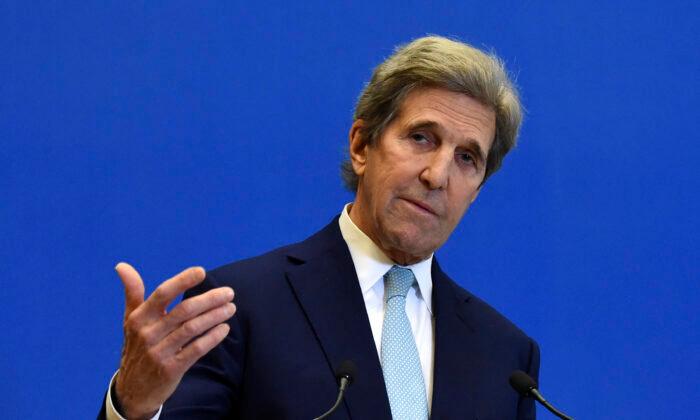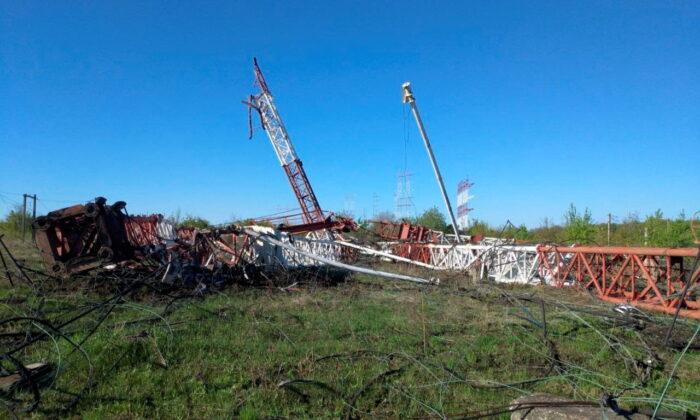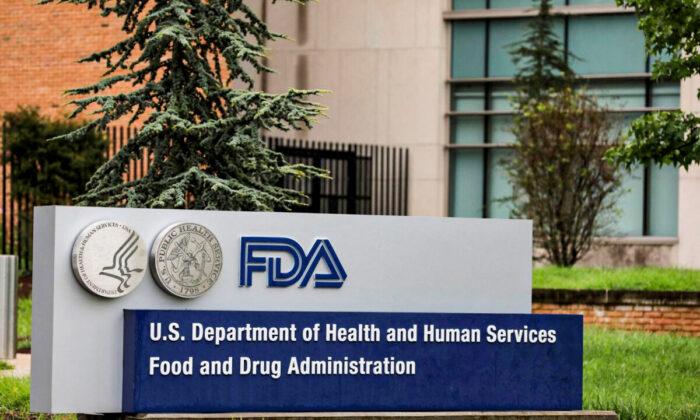Kerry is expected to arrive in Shanghai on Wednesday and has scheduled meetings with Chinese officials on Thursday and Friday, ahead of President Joe Biden’s Leaders Summit on Climate scheduled for later this month, and the 26th Conference of the Parties (COP26) to the United Nations Framework Convention on Climate Change later this year.
“Ambassador Kerry is sending the absolute wrong signal by planning to travel to the People’s Republic of China to discuss climate issues,” McCaul said. “The PRC is the world’s largest carbon emitter and backer of coal power. Now reporting from Bloomberg is further revealing that forced labor and polluting industries are central to the PRC’s superficial green energy plans.”
He added, “The United States should be working with countries that want to solve international problems, not those that are creating or worsening them.”
China is the world’s largest emitter of greenhouse gases at about 30 percent.
It comes as Sens. Marco Rubio (R-Fla.) and Jeff Merkley (D-Ore.) called on the Solar Energy Industries Association (SEIA) to detail measures it or member companies have taken to ensure that solar products sourced from Xinjiang, including polysilicon, are not made using forced labor.
McCaul last month urged the Biden administration to add the People’s Republic of China (PRC) entities connected to the polysilicon supply chain to the U.S. Entity List, and cautioned Kerry about negotiating with the CCP on climate.
During the Trump administration, the United States added dozens of Chinese companies to its economic blacklist, including the country’s top smartphone maker Huawei Technologies, top chipmaker SMIC, and the largest drone manufacturer, SZ DJI Technology Co Ltd.
Those companies were sanctioned for a range of reasons, including their role in aiding the Chinese military and supporting the Chinese regime’s repression against Uyghurs in Xinjiang.
“The climate issue is a free-standing issue. It’s not for trade against the other critical differences that we have with China right now,” Kerry said. “Those have got to be channeled separately. Climate is about the survival of the planet.”
The trip will mark the first visit by a senior Biden administration official to China.
Experts fear that U.S. cooperation on climate change could lead the administration to give ground in other key domains such as human rights, trade, and national security.
The Chinese regime has already indicated that the United States would have to accept its own terms before the two sides could work together.
“China is ready to cooperate with the United States and the international community on climate change,” Foreign Ministry Spokesperson Zhao Lijian said on Jan. 28.
“That said, I’d like to stress that China-U.S. cooperation in specific areas … is closely linked with bilateral relations as a whole,” Zhao continued, adding the regime has repeatedly emphasized that “no one should imagine they could ask China to understand and support them in bilateral and global affairs when they blatantly interfere in China’s domestic affairs and undermine China’s interests.”





